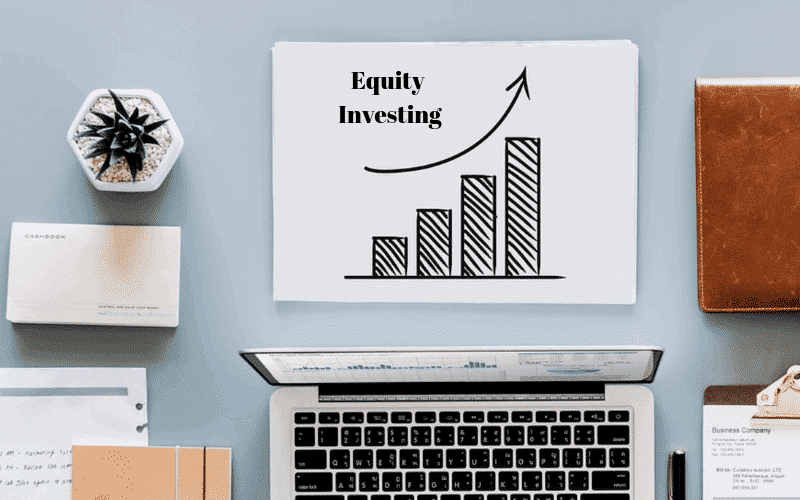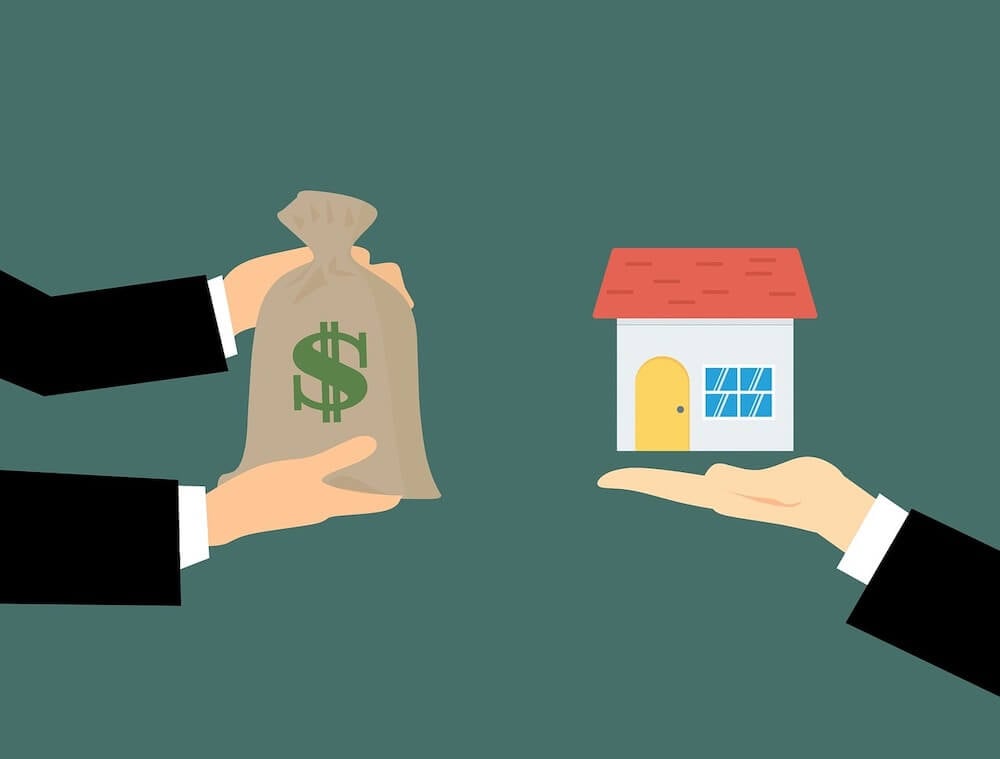Affiliate Links
Investing during a bear market can be quite intimidating and appear challenging. However, it doesn’t have to be if you ensure you are prepared ahead of time.
In a rough economy or during a financial crisis, the markets are going down, the media writes panic headlines, everyone is telling you to sell, and you’re sitting there not sure what direction to go.
It’s all too common and for most investors (new or experienced investors), losing money is all they think about.
Below I’ll talk more about bear markets, how to survive one, and staying the course with your investments.
Table of Contents
- What is A Bear Market?
- Bear Market vs. Correction
- Bear Market vs. Recession
- Historical Bear Market Examples
- Is A Bear Market Good Or Bad?
- Surviving A Bear Market
- Final Thoughts
What is A Bear Market?
When we are in a bear market it simply means that stocks, on average, have fallen at least 20% off their most recent high. It’s also practically impossible to know when the market has hit the bottom before recovery.
And many newbie investors will try to time the market, but that rarely will work. You may get lucky once in awhile, but it’s not recommended.
Many times a bear market happens due to certain economic triggers, other times it’s hard to know exactly what is spooking investors at first. Some things that can cause a bear market include:
- Anticipation of a looming recession
- Slowdown in business growth
- Slow job growth/rising unemployment
- Federal Reserve policy changes
Additionally, there is no way to predict exactly when or how long a bear market could last. We could see it last a month or two, all the way past two years! But when you start to invest wisely, you won’t let the volatile markets bother you much.
Bear Market vs. Correction
You may also hear about stock market corrections, which are different from bear markets. The difference here, is a correction occurs with a 10% or more decline from an index’s most recent peak.
Corrections can happen once or a few times a year, but typically bounce back relatively quickly.
Bear Market vs. Recession
Most likely, you’ll see bear markets associated with a recession, but there is a slight difference.
A recession from a bear market tends to happen when the effects from investors, is also affecting consumers. This can slow the economy on top of the downward trend in stocks, thus potentially leading to a recession.
Many times after the stock market crashes, a recession can happen. For more on recessions and the history, I’d dive into this post which explores further.
Historical Bear Market Examples
Over the years, there are some historical bear markets that have taken place. While there are more I could list out, I just wanted to share a few I found.
Since 1926, there have been eight bear markets, ranging in length from 6 months to 2.8 years, and in severity from an 83.4% drop in the S&P 500 to a decline of 21.8%, according to analysis by First Trust Advisors.
The Stock Market Crash of 1929 was the central event in a grinding bear market that lasted 2.8 years and sliced 83.4% off the value of the S&P 500
The bear market of 2007-2009 lasted 1.3 years and sent the S&P 500 down by 50.9%. (Investopedia)
Recommended: Looking for a free 401k portfolio analysis with recommendations? Blooom can help you find hidden fees, opportunity costs, and more about your current mix of assets. Get started for free here.
Is A Bear Market Good Or Bad?
During a bear market you will see stock prices fall and plenty of market volatility. This will most likely cause your assets top drop in price or fluctuate.
Remember, a bear market is only bad if you plan on selling your assets or need your money for any reason. A bear market can be good to balance things out if the markets are overvalued. Plus, falling stock prices can be beneficial to the buy and hold investor.
Bearish markets can present you with more opportunities to buy stocks or if you are dollar-cost averaging, can boost your returns in the future. If you can and do not need the money in your investments, always avoid panic selling.
Surviving A Bear Market
When a bear market happens on Wall Street, it can cause you to feel a swirl of emotions. Many of these emotions can trigger panic and potentially bad decision making.
It’s why so many people lose money in the stock market, they let emotions win and end up thinking in a foggy haze.
Below are a few things you should consider when investing your money during a bear market.
1. Always diversify your investments:
If a recession hits, diversification won’t save you from losses. And even in a standard bear market, you may lose some money too.
But, diversification of your investments can help protect catastrophic losses and keep your portfolio more balanced.
Spread your investments among stocks (different sectors or industries), bonds, REITs, maybe some actual real estate, cash, even commodities like gold or silver. Find the balance that is right for you and keep your portfolio well-mixed.
2. Keep investing as if nothing is happening:
You might think this is crazy, but if you are investing long-term, Dollar Cost Averaging can be your friend.
The goal here is to keep investing the same way and amounts you’ve been, do not change anything.
This will help minimize risk and balance your investments in the future. I’ve bought funds when they were downtrending and I’ve bought funds when they are at the highest.
Doesn’t matter to me, I’m investing for 25+ years in the future.
3. But also, keep a bit more cash handy:
While dollar-cost averaging is a great play, I’d also recommend keeping a bit more cash on the sidelines.
Ensure you are saving money for emergencies, but also (if you can), keep some on the side for purchasing power when the stock market declines.
Don’t try to time the bottom of the market, you’ll fail at it 99% of the time.
But, when things are on decline for awhile, you may want to purchase something extra or more of a particular fund when it’s cheaper.
4. Ignore the doom and gloom media:
There is nothing wrong reading financial publications from time to time, but steer clear of most during bear markets.
Everything is negative, the world is ending, the economy and financial markets are in turmoil, and stock up on canned goods and bunker down! You get the point.
But it can mess with your head and cause you to panic sell or make rash decisions about your investments.
Do yourself a favor, limit your consumption or at least read with a grain of salt so you won’t make investing decisions based on articles.
5. Log into your investment accounts less:
A good rule of thumb is not logging into your investment accounts very often anyway. But surviving a bear market means resisting the urge to login in everyday or multiple times a day.
If you are diversified and consistently investing by automating your money, you should not be logging in often.
Logging in too much can trigger you to tinker, sell, buy, or just make hasty decisions because you see numbers in the red.
Do your mental health a favor, remove the apps from your phone and avoid the temptation to login on your computer.
It’s okay to check in once in awhile, but multiple times a week may drive you nuts.
6. Have another stream of income:
Mostly likely a bear market will not lead to a major recession, but it can happen. Those can be a bit scary, because it affects jobs and money making.
I’ve been fortunate to not experience a recession yet, but I’m sure I will in my lifetime.
Besides having an emergency fund, another form of relief is to have another stream of income (no, not just your dividends or capital gains from the stock market investments).
Multiple streams of income are important and many of these are called side hustles, but can help you do a few things.
- Helps you save more money faster
- If a job loss happens from a recession, you can have other income to fallback on a bit
The challenge is a bear market can affect your other streams of income too. While most people might have one, it might be good to diversify this too if you can. There are various side hustles and ways to make money online.
Final Thoughts
Bear markets can be an intimidating and a scary time for your investments and the economy. However, they are also a part of life and will happen.
Remember, the world is not ending when these happen. If it is ending, money is the last thing you’ll care to worry about at this point.
Yes, a bear market could trigger a massively challenging time (looking at you 1929 crash), but it can and will recover with time.
Hopefully the above checklist will help you be a bit more prepared to survive a bear market, whenever that may be next.
Your goal is to be prepared during the good times, so the downside doesn’t decimate your personal life and finances.
Are you prepared for a bear market? What else would you recommend people do to survive one? Let me know in the comments below!















